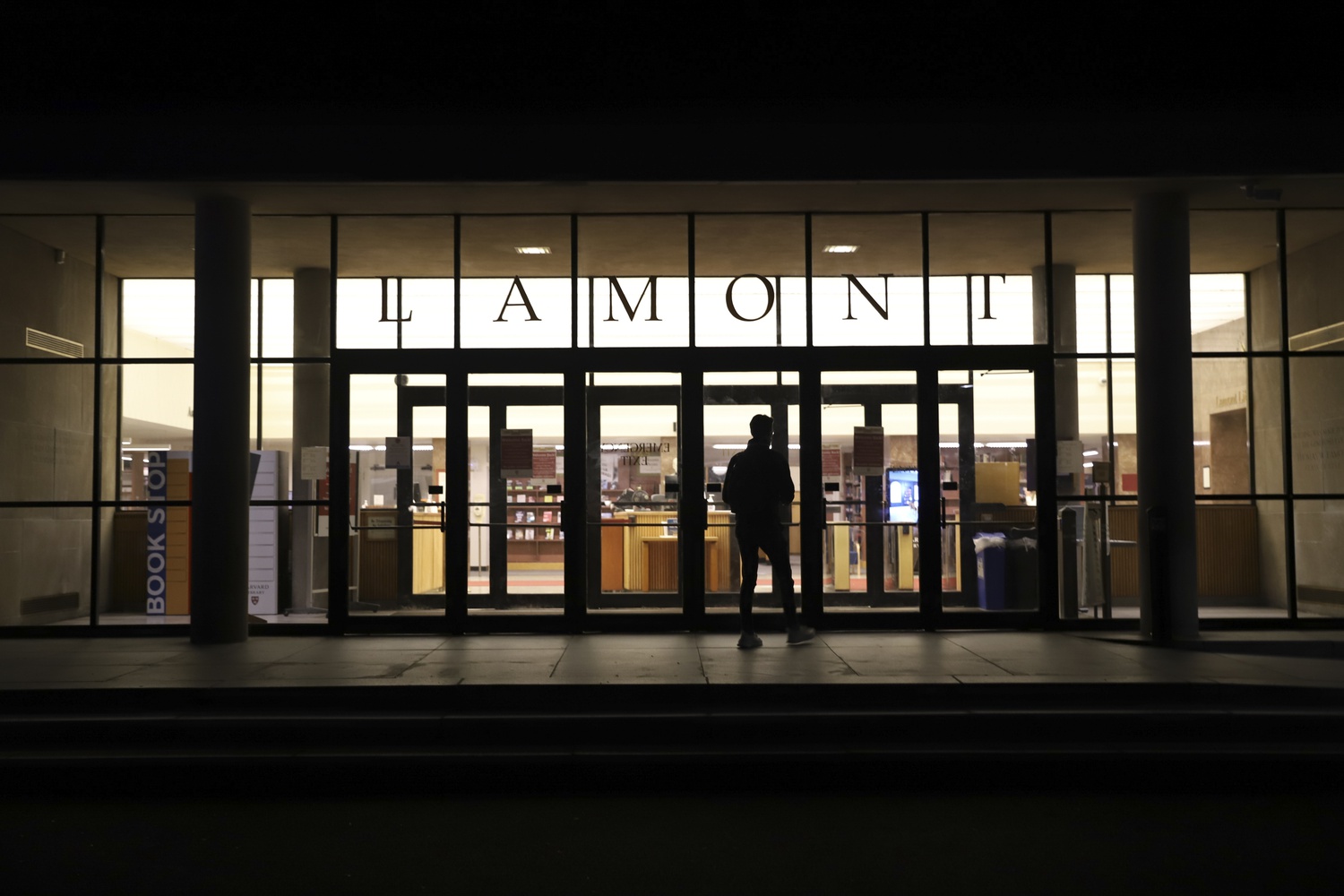
News
Summers Will Not Finish Semester of Teaching as Harvard Investigates Epstein Ties

News
Harvard College Students Report Favoring Divestment from Israel in HUA Survey

News
‘He Should Resign’: Harvard Undergrads Take Hard Line Against Summers Over Epstein Scandal

News
Harvard To Launch New Investigation Into Epstein’s Ties to Summers, Other University Affiliates

News
Harvard Students To Vote on Divestment From Israel in Inaugural HUA Election Survey
What Grades Can’t Measure
Last week, Harvard sent undergraduates an email ominously titled “An Update on Grading.”
Walking into Lowell Dining Hall, it was one of the few times you could hear audible murmurs about any College communiqué. In some sense, the reaction was warranted; the extent of the grade inflation it described was pretty shocking. No matter how smart students are here, it would seem to be impossible that across classes 60 percent of students actually achieve the mastery deserving of an A. It just doesn’t pass the eye test.
What was more striking about the report, though, was its claim that the College must re-center academics at the heart of the student psyche. That’s right, you lazy Harvard students: you’re not working hard enough. But the report also concludes that students have been working at least as hard as ever.
Still, this whole debate over academics raises a more existential question: Should coursework be the sun around which a student’s life orbits? I believe it’s a matter of choice.
Transitioning from high school to college can be a jarring experience. For most people, it’s the first time in their lives that they’ve managed an unstructured schedule and the freedom that comes with it.
An initial struggle is understandable. From an economic lens, learning time management is simple utility optimization — learning how to maximize one’s preferences with a 24-hour budget. Students absorb these skills in college, as they balance competing interests of their coursework, clubs, sleep, and social lives. And for a college that so heavily emphasizes extracurriculars in its admissions, it shouldn’t be surprising to see people put clubs in such a paramount position.
Under the current system, students can choose to take Mathematics 55A: “Studies in Algebra and Group Theory” or Statistics 110: “Introduction to Probability” and spend 50 hours per week on coursework; they also can take four less rigorous classes and prioritize their sleep. That flexibility is a good thing. It doesn’t mean that the student taking the lighter course load isn’t prioritizing academics; they just divide their time differently.
The University, however, sees this ability for students to set their own priorities as a problem. In particular, the report depicts many students as fixated on maintaining their 4.0 and driven by the pursuit of jobs or graduate school admission. This presentation is a jarring exaggeration. Preprofessionalism at Harvard runs deep, but it doesn’t define every student’s life. And even for the most careerist among us, isn’t it up to them as individuals to change their behavior, rather than paternalistic administrators?
It’s an especially odd view that the University must re-center academics when students’ time and schedules are already oriented around their classes.
Walk into any dining hall during midterms, and you’ll see students comparing problem set answers and polishing papers. Course registration has just begun, and it’s clear to me how much thought students put into building their schedule. If that’s not “centering academics,” what is?
And what worries me most is that Harvard, by attempting to create wider distributions of grades, risks, in effect, eliminating students' options in how they want to manage their time.
After all, not all classes are the same, and some take less time to master. Deflating grades for certain courses would only work to turn students against each other, further increasing workload and replacing our current collaborative culture with something more cutthroat.
Indeed, it may even discourage students from pursuing more challenging classes. Some students use easier classes to balance out their workload to make sure they aren’t living in Lamont Library while taking harder courses. It’s simply optimization.
These are the trade-offs that shape student schedules, not laziness or intellectual failure.
There’s nothing wrong with easy-A classes, or students packing their schedules with them. Students can and should make their own decisions about what they want to get out of their college experience. What is important is that grading simply must reflect the quality of someone’s work and their mastery of the material.
A Harvard education isn’t defined by the hours spent in Lamont. It’s defined by how we learn to balance ambition with curiosity. Administrators can change the grading curve, but the real learning happens when students decide what matters to them.
Henry F. Haidar ’28, a Crimson Editorial editor, is an Applied Math concentrator in Lowell House.
Want to keep up with breaking news? Subscribe to our email newsletter.

